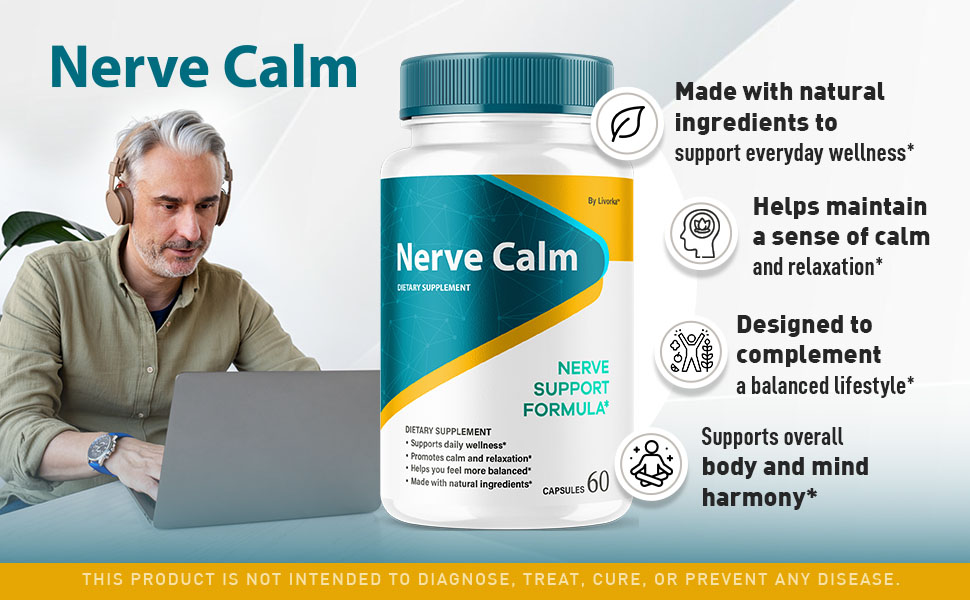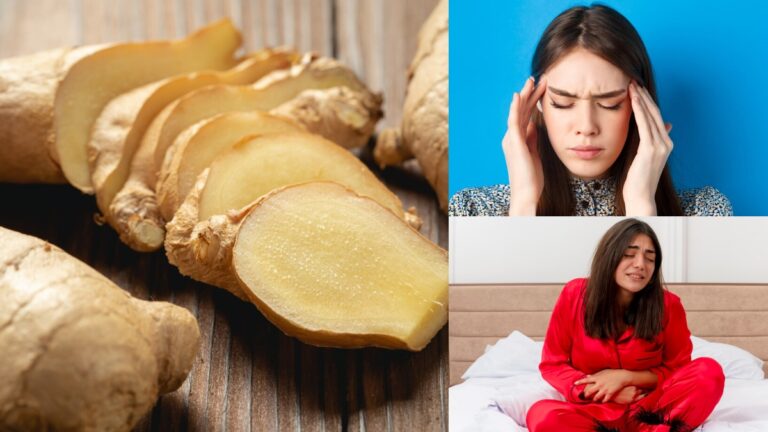Beyond the Calming Pill: Foods That Naturally Support Sleep, Stress, and Muscle Function
In a world perpetually speeding up, where the demands of modern life seem to outpace our innate capacity for resilience, many of us find ourselves caught in a familiar trio of struggles: restless nights, unyielding stress, and the subtle or not-so-subtle aches of a body not quite performing at its peak. We often seek solace in quick fixes – the sleep aid, the anti-anxiety prescription, the muscle relaxant. These tools, while sometimes necessary, often address symptoms rather than the root cause, creating a cycle of dependency and a lingering sense that something fundamental is missing.
But what if the most potent pharmacy isn’t behind a counter, but rather within the vibrant tapestry of our own kitchens? What if the antidote to these modern maladies has been cultivated from the earth for millennia, waiting to be rediscovered not as a cure-all, but as the foundational building blocks of a truly thriving existence? This is the story of food as medicine, not in the reductionist sense of isolating a single nutrient, but in the profound, synergistic power of whole, unprocessed foods to naturally support our sleep, fortify our minds against stress, and enhance the very fabric of our muscular being.
Our bodies are magnificent, intricate ecosystems, constantly striving for balance. Every bite we take introduces information – instructions, really – that can either nourish this balance or subtly disrupt it. For the knowledgeable individual, already aware of the broad strokes of healthy eating, this deeper dive isn’t about rigid diets or restrictive rules. It’s about understanding the subtle biochemistry, the elegant dance of macronutrients and micronutrients that, when orchestrated correctly, can transform our daily experience from one of constant battle to one of quiet, inherent strength.
The Lullaby on a Plate: Foods for Restorative Sleep
Sleep is not merely a pause in our day; it is an active, vital process of repair, consolidation, and detoxification. Chronic sleep deprivation, a pervasive issue in contemporary society, doesn’t just leave us feeling groggy; it impairs cognitive function, weakens the immune system, exacerbates stress, and even hinders muscle recovery and growth. While screens, schedules, and worries are often blamed, the quality and timing of our nutrition play an equally critical, often overlooked, role.
Imagine a night of truly restorative sleep – deep, uninterrupted, leaving you feeling genuinely refreshed, not just less tired. This isn’t a pipe dream; it’s a physiological possibility largely influenced by the availability of specific nutrients that regulate our circadian rhythm and promote relaxation.
The Biochemical Symphony of Sleep:
At the heart of our sleep cycle is melatonin, the "darkness hormone" produced by the pineal gland. Its precursor is serotonin, often dubbed the "feel-good" neurotransmitter, which in turn is synthesized from the essential amino acid tryptophan. The journey from tryptophan to serotonin to melatonin is a nutrient-dependent pathway, requiring cofactors like B vitamins (B6, B9, B12) and magnesium.
Another crucial player is GABA (gamma-aminobutyric acid), the primary inhibitory neurotransmitter in the brain. GABA helps calm nervous activity, reducing overstimulation and promoting a state of relaxation conducive to sleep. Its production and effectiveness are also influenced by nutritional status.
Key Foods and Their Mechanisms:
-
Tart Cherries (Especially Montmorency): These vibrant fruits are perhaps one of the most celebrated natural sleep aids. Unlike other fruits, tart cherries are a rare food source of natural melatonin. Studies have shown that consuming tart cherry juice can significantly increase circulating melatonin levels and improve sleep quality and duration. Beyond melatonin, their rich antioxidant profile helps reduce inflammation, which can also interfere with sleep.
-
Walnuts and Almonds: These versatile nuts are powerhouses for sleep. Walnuts are another food source of melatonin, and both walnuts and almonds provide a significant amount of magnesium. Magnesium, often called "nature’s tranquilizer," plays a critical role in relaxing muscles and nerves. It helps activate GABA receptors in the brain, calming the nervous system. Almonds also provide tryptophan, and healthy fats that support overall brain function.
-
Fatty Fish (Salmon, Mackerel, Sardines): Rich in omega-3 fatty acids (EPA and DHA) and Vitamin D, fatty fish contribute to sleep quality through multiple pathways. Omega-3s are vital for brain health and can reduce inflammation, which is known to disrupt sleep. Vitamin D receptors are found in areas of the brain that regulate sleep, and deficiencies have been linked to sleep disturbances. These nutrients also play a role in serotonin regulation.
-
Kiwi: This small, fuzzy fruit is surprisingly potent for sleep. Research suggests that consuming kiwis before bed can improve sleep onset, duration, and efficiency. This is attributed to their high serotonin content, as well as antioxidants like Vitamin C and E, which may reduce oxidative stress that can impede sleep.
-
Leafy Green Vegetables (Spinach, Kale, Swiss Chard): These nutritional titans are packed with magnesium, as well as folate (Vitamin B9), which is essential for the synthesis of neurotransmitters, including serotonin. Their high fiber content also contributes to stable blood sugar, preventing nocturnal dips that can awaken you.
-
Whole Grains (Oats, Quinoa, Brown Rice): Complex carbohydrates from whole grains help promote sleep in two ways. Firstly, they stimulate insulin release, which helps tryptophan cross the blood-brain barrier more effectively. Once in the brain, tryptophan can then be converted to serotonin and melatonin. Secondly, the sustained release of glucose prevents blood sugar crashes that can disrupt sleep. Oats are particularly noteworthy as a source of melatonin.
-
Legumes (Chickpeas, Lentils): These are excellent sources of tryptophan, magnesium, and various B vitamins, all crucial cofactors in the sleep-regulating pathways. Their fiber content also aids in stable blood sugar.
Integrating Sleep-Supportive Foods:
The key isn’t to gorge on these foods right before bed, which can disrupt digestion. Instead, focus on incorporating them consistently throughout the day, particularly during your evening meal. A balanced dinner that includes a lean protein (rich in tryptophan), a complex carbohydrate, and a generous portion of leafy greens, followed by a handful of almonds or a small bowl of tart cherries a couple of hours before sleep, can create an optimal internal environment for drifting into a peaceful slumber. The story here is one of gentle persuasion, preparing your body with the right cues, allowing it to naturally unwind and surrender to rest.
The Inner Sanctuary: Nourishing Resilience Against Stress
Stress is an inescapable part of life. The challenge isn’t to eliminate it, but to build our physiological and psychological resilience against its corrosive effects. In an age of chronic, low-grade stress – from endless emails to financial worries – our bodies are often stuck in a perpetual "fight or flight" mode, leading to elevated cortisol, inflammation, and nutrient depletion. This constant activation drains our reserves, impacting everything from mood to immunity.
Imagine a state of inner calm amidst the storm, a feeling of centeredness even when external pressures mount. This resilience isn’t just a mental game; it’s deeply rooted in the nutrients we provide our bodies, which act as architects of our nervous system’s fortitude.
The Biochemistry of Stress Resilience:
Our stress response is complex, involving the HPA (hypothalamic-pituitary-adrenal) axis. Chronic stress can deplete vital nutrients, particularly B vitamins, magnesium, and Vitamin C, which are crucial for neurotransmitter synthesis and adrenal function. The gut-brain axis has also emerged as a critical player, with the microbiome significantly influencing mood and stress response through its production of neurotransmitters and short-chain fatty acids.
Key Foods and Their Mechanisms:
-
Fermented Foods (Kimchi, Sauerkraut, Yogurt, Kefir): These probiotic-rich foods are revolutionary for stress management, acting primarily through the gut-brain axis. A healthy gut microbiome can produce neurotransmitters like serotonin and GABA, which directly impact mood and relaxation. Probiotics have been shown to reduce inflammation and even lessen anxiety and depression symptoms in some studies. By nurturing your gut, you’re building a resilient internal sanctuary.
-
Berries (Blueberries, Raspberries, Strawberries): These vibrant fruits are packed with antioxidants, particularly flavonoids, which help combat oxidative stress caused by chronic stress. They also contain Vitamin C, which plays a crucial role in supporting adrenal gland function and can help regulate cortisol levels. The anthocyanins in berries have anti-inflammatory properties that can protect the brain from stress-induced damage.
-
Dark Chocolate (70% Cacao or Higher): Good news for chocolate lovers! Dark chocolate contains flavonoids that act as powerful antioxidants, along with compounds like theobromine that can have a calming effect. It also contains small amounts of tryptophan and magnesium, contributing to its mood-boosting and stress-reducing properties. The act of savoring dark chocolate can itself be a mindful, stress-reducing practice.
-
Avocados, Nuts, and Seeds (Almonds, Walnuts, Chia Seeds, Flax Seeds): These foods are rich in healthy monounsaturated and polyunsaturated fats, which are essential for brain health and cell membrane integrity. They are also excellent sources of magnesium, B vitamins (especially folate), and zinc, all vital for neurotransmitter synthesis and nervous system regulation. The fiber in nuts and seeds also supports gut health.
-
Leafy Green Vegetables (Spinach, Kale, Broccoli): Beyond their magnesium content, leafy greens are rich in folate (Vitamin B9), which is critical for the synthesis of neurotransmitters like serotonin, dopamine, and norepinephrine, all of which influence mood and stress response. Their high antioxidant content also helps neutralize stress-induced free radicals.
-
Whole Grains (Oats, Quinoa, Barley): Complex carbohydrates provide a steady supply of glucose to the brain, preventing blood sugar crashes that can exacerbate irritability and anxiety. They also contain B vitamins, particularly B1 (thiamine), B2 (riboflavin), B3 (niacin), and B6 (pyridoxine), which are essential for energy metabolism and nervous system function.
-
Herbal Teas (Chamomile, Valerian, Lemon Balm): While not strictly "food," these herbal infusions are culinary staples that offer gentle, natural support for stress reduction. Chamomile and lemon balm are known for their calming properties, while valerian root is often used for its anxiolytic effects, primarily by enhancing GABA activity.
Integrating Stress-Supportive Foods:
Building stress resilience through diet is an ongoing process. Focus on a diverse, whole-foods approach that prioritizes gut health, brain-nourishing fats, and a spectrum of micronutrients. Starting your day with a probiotic-rich yogurt or kefir, snacking on berries and nuts, and ensuring your main meals are rich in leafy greens and complex carbohydrates can create a continuous flow of stress-buffering nutrients. The story here is about building an inner fortress, not for defense against attack, but for nurturing a sense of calm strength from within.
The Architects of Strength: Fueling Muscle Function and Recovery
Our muscles are the engines of our mobility, strength, and vitality. Beyond enabling movement, they play a crucial role in metabolism, blood sugar regulation, and overall physical function. Whether you’re an athlete or simply aiming for healthy aging, supporting muscle function and efficient recovery is paramount. While protein often takes center stage, a complex interplay of carbohydrates, healthy fats, vitamins, and minerals is equally vital for building, repairing, and optimizing muscular performance.
Imagine a body that moves with ease, recovers swiftly from exertion, and maintains its strength and resilience well into later years. This isn’t solely about hitting the gym; it’s profoundly influenced by the precise nutritional signals we send to our muscle cells, dictating their growth, energy production, and repair mechanisms.
The Biochemistry of Muscle Health:
Muscle function relies on a constant supply of amino acids for protein synthesis (building and repairing muscle tissue), glucose (from carbohydrates) for energy (glycogen stores), and electrolytes (potassium, sodium, magnesium, calcium) for nerve impulse transmission and muscle contraction. Vitamins and minerals act as cofactors for enzymatic reactions involved in energy production, antioxidant defense, and inflammation control, all critical for recovery.
Key Foods and Their Mechanisms:
-
Lean Proteins (Chicken Breast, Turkey, Fish, Eggs, Legumes, Tofu, Tempeh): The foundational building blocks of muscle. These foods provide a complete profile of essential amino acids, which are indispensable for muscle protein synthesis (MPS). Consuming adequate protein, especially after exercise, is crucial for repairing muscle damage and promoting growth. Plant-based proteins like legumes (lentils, beans, chickpeas) and soy products offer excellent alternatives and additional fiber.
-
Complex Carbohydrates (Sweet Potatoes, Oats, Quinoa, Brown Rice, Whole Grain Bread): Often misunderstood, carbohydrates are the primary fuel source for high-intensity exercise and crucial for muscle recovery. They replenish glycogen stores in muscles and the liver, preventing fatigue and supporting sustained performance. Choosing complex carbohydrates ensures a steady release of glucose, avoiding energy crashes and providing consistent fuel for muscle repair.
-
Berries and Cruciferous Vegetables (Broccoli, Brussels Sprouts, Cabbage): These vibrant foods are rich in antioxidants (Vitamin C, E, flavonoids) and phytonutrients that combat exercise-induced oxidative stress and inflammation. Reducing inflammation is key for faster muscle recovery and reducing post-workout soreness. Broccoli, in particular, contains compounds that support liver detoxification, which can indirectly aid recovery.
-
Nuts and Seeds (Almonds, Walnuts, Chia Seeds, Flax Seeds, Pumpkin Seeds): Providing a blend of healthy fats, protein, fiber, and essential minerals like magnesium, zinc, and selenium. Magnesium is crucial for muscle contraction and relaxation, as well as ATP (energy) production. Zinc supports immune function and hormone production, both vital for muscle repair.
-
Dairy and Fortified Alternatives (Milk, Yogurt, Fortified Plant Milks): Excellent sources of calcium and Vitamin D, which are essential for bone health (the anchors for our muscles) and muscle contraction. Dairy proteins also provide both fast-digesting (whey) and slow-digesting (casein) proteins, offering a sustained release of amino acids beneficial for recovery.
-
Bananas: A readily available source of potassium, an essential electrolyte that plays a vital role in muscle contraction, nerve function, and fluid balance. Replenishing potassium after exercise is crucial to prevent cramps and maintain optimal muscle function.
-
Water: Though not a food, it’s the most critical nutrient for muscle function. Muscles are approximately 75% water. Dehydration impairs performance, reduces strength, and hinders nutrient transport and waste removal, significantly impacting recovery.
Integrating Muscle-Supportive Foods:
Fueling muscle function and recovery is about consistent nourishment, not just a post-workout shake. Distribute protein intake throughout the day to support continuous muscle protein synthesis. Pair complex carbohydrates with protein to optimize glycogen replenishment and amino acid uptake. Emphasize a wide variety of antioxidant-rich fruits and vegetables to manage inflammation. And, of course, stay consistently hydrated. The story here is one of building and maintaining a strong, capable vessel, allowing for sustained movement, strength, and the freedom of physical vitality.
The Interconnected Web: A Holistic Perspective
What becomes evident as we delve into the specific roles of food in sleep, stress, and muscle function is the profound interconnectedness of these systems. They do not operate in isolation; rather, they form a delicate, dynamic web.
- Poor sleep exacerbates stress, increases inflammation, and impairs muscle recovery and growth hormone release.
- Chronic stress disrupts sleep, depletes nutrients essential for muscle repair, and can lead to muscle tension and pain.
- Suboptimal muscle function can contribute to discomfort, limit physical activity (which helps manage stress and promote sleep), and impact metabolic health.
The common threads that weave through all three pillars are striking: magnesium, B vitamins, omega-3 fatty acids, antioxidants, and a healthy gut microbiome. These are not isolated agents but cofactors in a symphony of biochemical reactions that underpin our very existence. This reinforces the central message: whole, unprocessed foods are the key. They offer a complete package of nutrients that work synergistically, far more effectively than any isolated supplement. A diet rich in diverse plant foods, lean proteins, and healthy fats naturally addresses the needs of all three systems simultaneously.
Practical Integration: Crafting Your Nutritional Story
Understanding the science is one thing; translating it into daily practice is another. The beauty of this knowledge for a knowledgeable audience lies in its application, not as a restrictive diet, but as an empowering framework.
-
Start Small, Be Consistent: Don’t overhaul your entire diet overnight. Choose one or two food categories to focus on initially. Perhaps aim to include more leafy greens with dinner for magnesium and folate, or switch your afternoon snack to a handful of almonds and berries. Consistency over time yields profound results.
-
Crowd Out, Don’t Just Restrict: Instead of fixating on what you "can’t" have, focus on what you can add. By crowding your plate with nutrient-dense foods, you naturally reduce your appetite for less beneficial options.
-
Prioritize Diversity: The microbiome thrives on diversity. Aim for a wide array of fruits, vegetables, whole grains, and legumes across the week. Each unique plant food brings its own spectrum of phytonutrients and fibers that nurture different beneficial gut bacteria.
-
Mindful Eating: Pay attention to how different foods make you feel. Do you notice improved energy after a protein and complex carb meal? Does a handful of nuts before bed seem to help you drift off more easily? Your body provides invaluable feedback.
-
Hydration is Key: Water is often forgotten, but it’s fundamental to nutrient transport, detoxification, and cellular function across all three domains. Make clean, filtered water your primary beverage.
-
Embrace Culinary Exploration: Cooking is an act of self-care. Experiment with new recipes incorporating these foods. Discover the joy of creating nourishing meals that support your body’s intricate needs.
The story of "Beyond the Calming Pill" is not one of denial or deprivation, but of abundance and empowerment. It’s a narrative that shifts our perspective from viewing food merely as fuel or pleasure, to recognizing it as profound information, a daily dialogue with our physiological self. It’s about reconnecting with the innate wisdom of our bodies, understanding that they are constantly striving for equilibrium, and that we hold the power to support that quest through the simple, yet profound, act of choosing what we eat.
This journey back to foundational nutrition is a quiet revolution. It’s a commitment to treating our bodies not as machines to be fixed with external interventions, but as living, breathing ecosystems that flourish when provided with the right raw materials. As knowledgeable individuals, we understand that true wellness isn’t found in a single pill, but in the cumulative, synergistic power of daily choices, cultivated from the earth, and prepared with intention. The plate before us is more than just a meal; it is an invitation to deeper sleep, greater resilience, and enduring strength – a delicious pathway to a more vibrant, balanced life.





